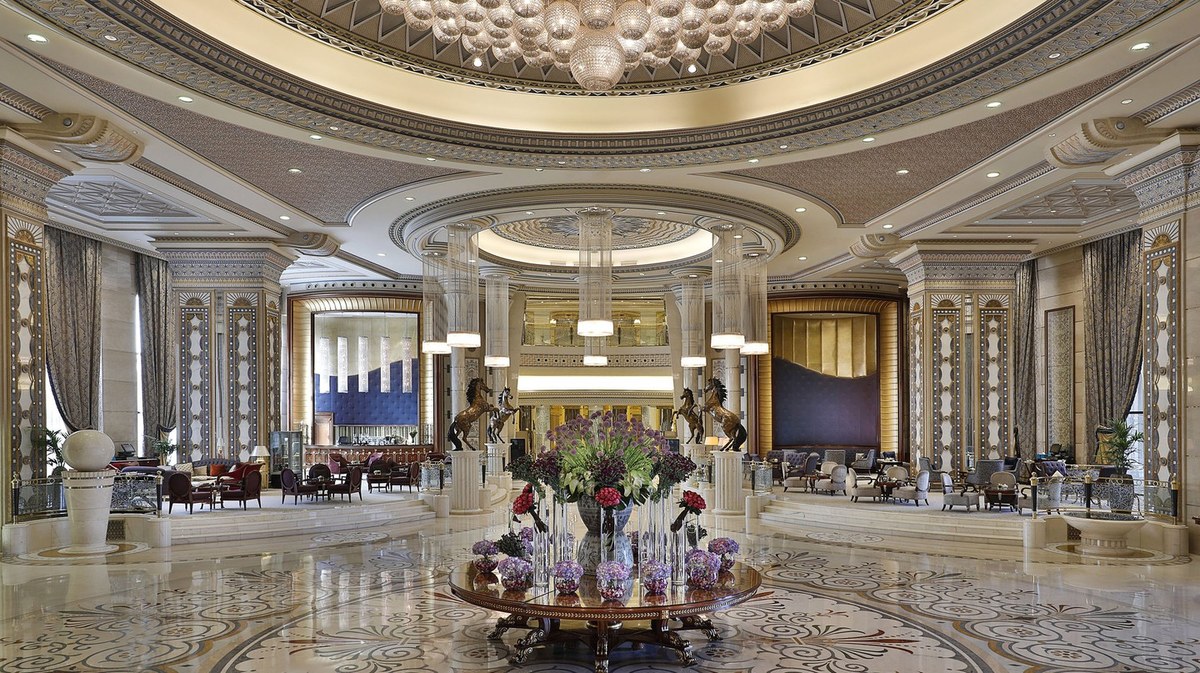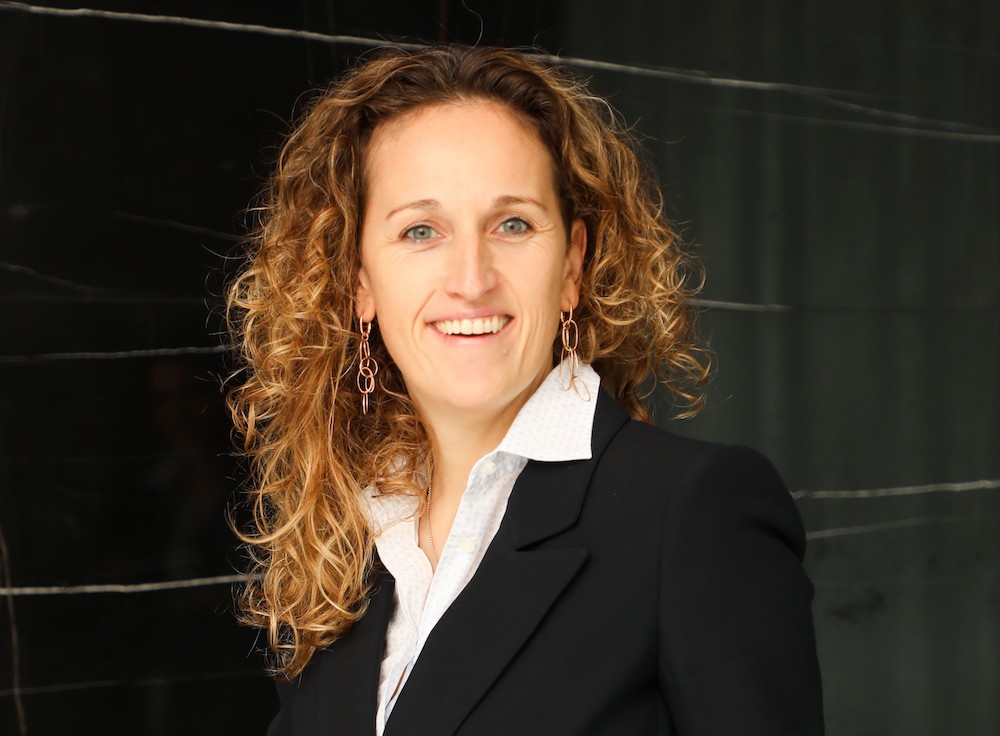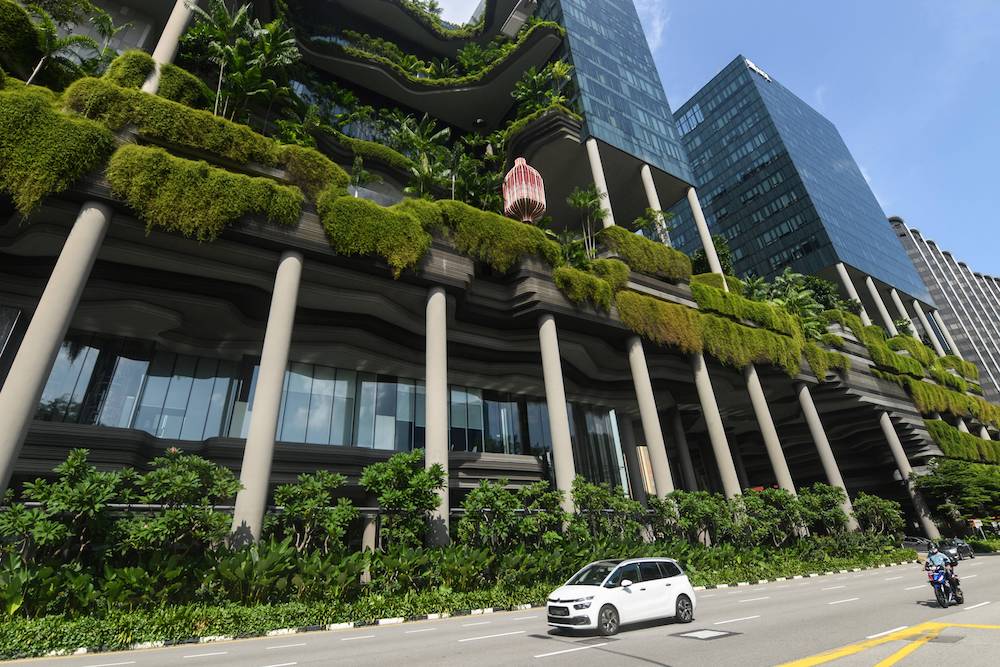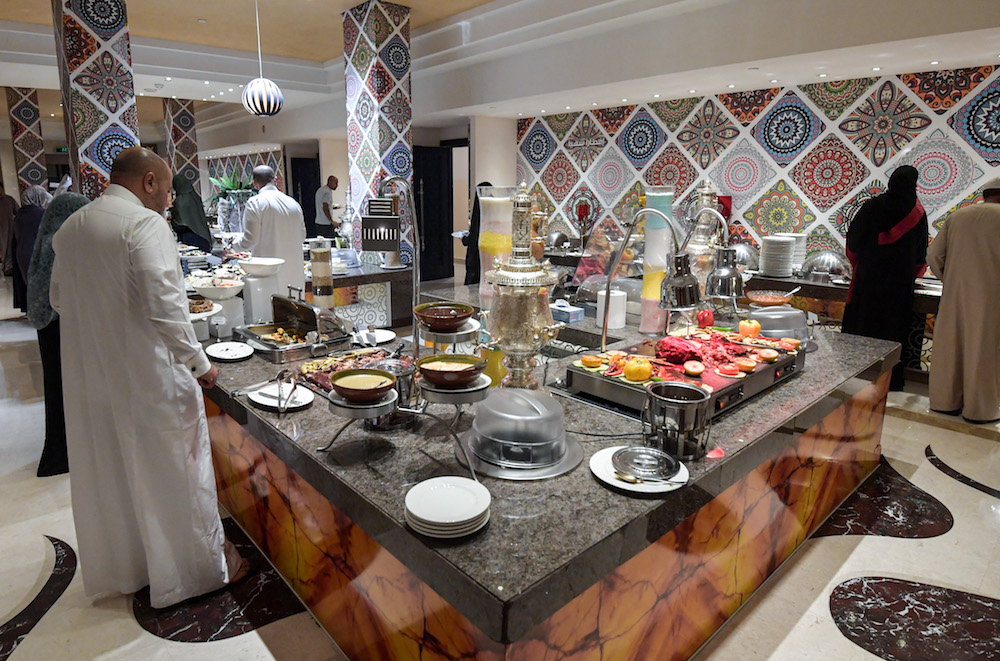DUBAI: What attracts guests to a hotel? Fine dining, Egyptian cotton sheets and 24-hour room service, certainly. But that model of hospitality may be changing — at least if a new generation of hoteliers, bar owners and restaurateurs has its way.
Rather than reviewing the contents of the minibar or revising the coffee shop menu, this new breed of hotel operator is intent on combating loneliness, sourcing from local farmers, fighting climate change and building a sense of community.
In 2014, Hotelschool the Hague, a training institute, created the Sustainable Hospitality Challenge to provide a platform for the next generation of hospitality professionals who want to reinvent what hotels and restaurants have to offer.
These students are seen as future drivers of taste by their willingness to challenge the industry’s status quo. NEOM, the futuristic smart city in northwest Saudi Arabia, sponsored this year’s competition.

Saudi Arabia's natural beauty is matched by the opulent interiors of Riyadh's premium hotels (Courtesy of The Ritz-Carlton, Riyadh/ Expedia.com)
“The NEOM giga-project, which we all call ‘the city of the future,’ aims to incorporate smart-city technologies and innovation with a focus on sustainability,” Marloes Knippenberg, CEO of Kerten Hospitality and chair of the jury, told Arab News.
“It comes as no surprise that NEOM has sponsored the challenge this year, bringing all finalists to the event in the UAE.”
The event invited 30 universities from across the globe to submit ideas that would help the industry play its part in reaching the UN’s Sustainable Development Goals. Last month, six finalists presented their concepts to a jury of hospitality industry investors in Dubai.
Eve Mignot, a member of the winning team from Switzerland’s Ecole Hoteliere de Lausanne, said hospitality is at a crossroads. The sector has historically lagged behind other industries when it comes to embracing change, she said.
“It is time to reverse this stereotype and stigma and become leaders in sustainable innovations. With our concept, we anticipate the hospitality industry of 2050 to be a community builder, innovator and a responsible and ethical member of society.”

Marloes Knippenberg CEO Kerten Hospitality. (Supplied)
The winning team proposed a concept dubbed “Shared Economic Value through Co-living Cooperative Opportunities,” or SEVCCO, which aims to incorporate sustainability through communal living operated by hospitality companies, for which they see immense potential in growing cities.
This will require a reimagining of lifestyles, business models and strategies. “There has never been a more pressing time to reinvent the industry,” Mignot said.
The team hopes this concept of “neo-hospitality” will transform societies and become a driving force that inspires communities and other industries to engage in the transformation of the world by 2050.
Lukas Lauber, another team member, said that while oil has accelerated growth and development in the Middle East, secondary consumption of oil has had negative consequences in terms of climate change and its effects on the environment.

This photograph taken on July 23, 2021 shows a view of the Park Royal Collection Hotel at Pickering Street in Singapore. (AFP)
However, in recent years, many countries in the region have adopted diversification strategies to their national economies as well as introduced policies to reduce their dependence on oil reserves and promote renewable energy. This is where SEVCCO comes in.
“Countries in the Middle East are hoping to attract foreign investment. A large part of this strategy involves tourism and hospitality, as seen by the re-branding of Dubai as a tourism hub and Saudi Arabia’s Vision 2030 strategy whereby it seeks to develop cities and destinations,” Lauber told Arab News.
As countries in the region develop, he said sustainable communities and cities must be built to promote a more cyclical and regenerative society. “This is where we promote SEVCCO, the creation of co-living environments for tomorrow,” said Stefano Abedum de Lima Hanzawa, a third team member.
“It is imperative that the Middle East incorporates sustainability and regenerative growth into their strategy for economic diversification and development.”
FASTFACTS
* NEOM, the futuristic smart city in northwest Saudi Arabia, sponsored this year’s Sustainable Hospitality Challenge competition.
* Some 30 universities were invited to submit ideas that would help the hospitality industry play its part in achieving the UN’s SDGs.
These concerns are made more pressing as the 2030 deadline for the UN Sustainable Development Goals draws nearer. By then, national economies must mobilize to prevent a 1.5 Celsius increase in global temperatures and implement strategies to shift away from fossil-fueled economies.
The team developed the SEVCCO concept to empower individuals and communities to come together and co-create a city of the future that complies with these goals.
“The concept of cognitive cities is gaining traction, as seen by the NEOM development in Saudi Arabia, and this acceleration and momentum will continue to grow,” Hanzawa said.
“We believe cyclical and sustainable co-living has incredible potential to change the way we behave and live for a better tomorrow. We wish to tackle the most pressing issues such as urban loneliness — exacerbated by the pandemic.”

Muslim pilgrims add food to their plates from the buffet of a restaurant at a luxury hotel overlooking the Kaaba, Islam’s holiest shrine, and its encompassing Grand Mosque in Saudi Arabia’s holy city of Makkah ahead of the annual Hajj pilgrimage. (AFP/File Photo)
Other ills listed by the competitors include unsustainable production and consumption of scarce resources, resource inefficiencies, housing shortages experienced by generations Y and Z, growing elderly care home demand, the difficulties of waste management and the challenges of reducing carbon footprints by 2030.
“SHC brings forth innovative ideas about sustainable, implementable projects. The corporate world launches and brings them to life only if and when they are presented to them,” said Knippenberg. “The challenge (has) become a platform that reaches decision-makers today and is not just a school engagement.”
This year, the initiative brought together the student community, the corporate world, and investors. As 70 percent of the Middle East’s population are younger than 35, the competition is relevant to the region, the organizers said, as governments invest heavily in shifting toward knowledge-based economies.
“Especially in the Middle East, there is a great opportunity to implement ‘out of the box’ ideas,” said Paul Griep, director of industry and alumni relations at Hotelschool The Hague and founder of the challenge.
“As the region grows exponentially, it is of utmost importance for the region to become the showroom of the world when it comes to implementing sustainable solutions. Sustainability projects are the core of the multiple giga-projects in Saudi Arabia, (such as) NEOM.”

Picture from thestage from the award ceremony on stage at AHIC, in September 2021, with members of the jury and the winners. (Supplied)
Aside from EHL, the Hotel Institute Montreux in Switzerland, the Hotel Management School Maastricht Zuyd and the Hotelschool The Hague, Ryerson University from Canada, and CY Cergy Paris University in France took part, as did students from the Middle East.
The judges said the SEVCCO concept developed by EHL won out because it looked long term.
“Their concept was unique, well thought of and very 2050,” Knippenberg said. “Their idea seems like a natural evolution — community build, supporting the locality and the local supply chain and doing things with a truly sustainable mindset.”
Griep said that the younger generation coming into management is especially passionate about sustainability. “In fact, they no longer wish for it but actually require it,” he said.
“It has been proven that, thanks to this mindset, innovative solutions have already been developed. The challenge provides an opportunity for these students to work with industry partners, universities and companies alike, which help them make their concepts become real hospitality projects.”
---------------
Twitter: @CalineMalek
















